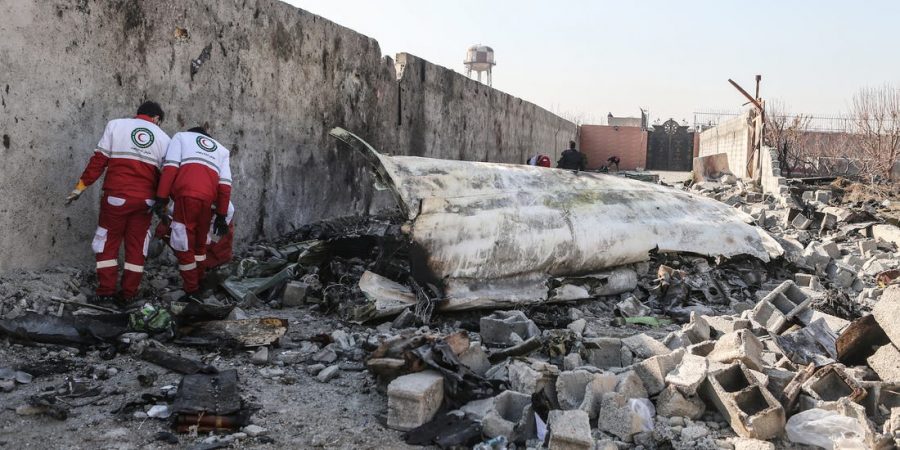Aftermath of Ukraine Plane Shot Down By Iranian Missiles
January 29, 2020
Two Iranian Tor-M1 missiles hit Ukraine International Airlines Flight 752 on January 8th, killing all 176 passengers aboard.
The missiles, launched from an Iranian military site around eight miles from the plane, were initially said to have been “unintentionally” launched, with Iran rejecting suggestions that it was to blame for the incident.
However, Islamic Republic of Iran President Hassan Rouhani later admitted that the missiles were fired by the Iranian military after misidentifying the passenger plane as a cruise missile, stating the reason for the mistake as “human error.”
In a recent video apologizing for the plane incident, Rouhani offered condolences to the families of those passed killed, later also tweeting, “The Islamic Republic of Iran deeply regrets this disastrous mistake.”
Many Iranians, however, expressed anger at the country’s apology, believing that the country should have taken even harsher actions of revenge against the U.S. in light of the recent assassination of Iranian Major General Qassim Suleimani.
On January 14th, an Iranian by the name of Javad uploaded security camera footage of the two missiles on Youtube. In the viral two minute video, two missiles can be clearly seen being launched and striking the Boeing 737, which resultingly crashes down from the sky.
In a tweet after uploading the video, Javad tweeted, “It’s possible I’ll be arrested or made to give a forced confession but it’s not important. Let the reasons become clear for those who still have doubts in their hearts as to who is right. Even if one person becomes informed, I am ready to accept the problems to the best of my ability. My will is ready, God willing it won’t become necessary.”
On the same day, Iran media reported that Iran’s elite Revolutionary Guards had taken into custody the person who shot the video of the missile attack for charges relating to national security. Iranian judiciary spokesman Gholamhossein Esmaili also stated that 30 people had been arrested for “taking part in illegal gatherings,” which likely referred to anti-government protests.
When asked about how the possible global repercussions of Iran’s attack, Senior Jenna Boguslavsky commented, “I think it will definitely negatively impact international relations with Iran since Iran killed almost 200 innocent civilians. Even though separate from the U.S. attack, many Americans are uninformed and will probably take it as an act of aggression against the U.S.”
In the weeks succeeding the attack, officials on the international front have reacted to the aftermath of the crash.
Canada, which had 57 citizens aboard the flight, announced on January 17th that it would offer monetary compensation to the dozens of families of those affected by the crash. Each family would be provided with 25,000 Canadian dollars to cover the cost of funerals and travel.
Prime Minister Justin Trudeau stated in a news conference on the same day, “I want to be clear: we expect Iran to compensate these families. But I have met them, they can’t wait weeks. They need support now.”
Among other controversies was the presence of two black boxes in the airplane.
The black boxes, which contain the flight data recorder, were requested by Ukrainian officials to be transferred to Ukraine.
The head of Iran’s Civil Aviation Organization commission Hassan Rezaifar initially told the semi-official news agency Tasnim that, “At the request of the Ukrainian authorities, the black boxes of the Ukrainian downed jet will not be read in Iran, but instead will be transferred to Ukraine for analysis and reading.”
However, Transportation Saftey Board investigators reported on January 16th that the boxes were still in Iran and Iranian authorities were looking at the possibility of downloading information from the boxes.
Despite continuous pressure from multiple countries, Iran has yet to return the boxes to Ukraine. Whatever information inside may contribute to more details about Flight 752’s crash.







